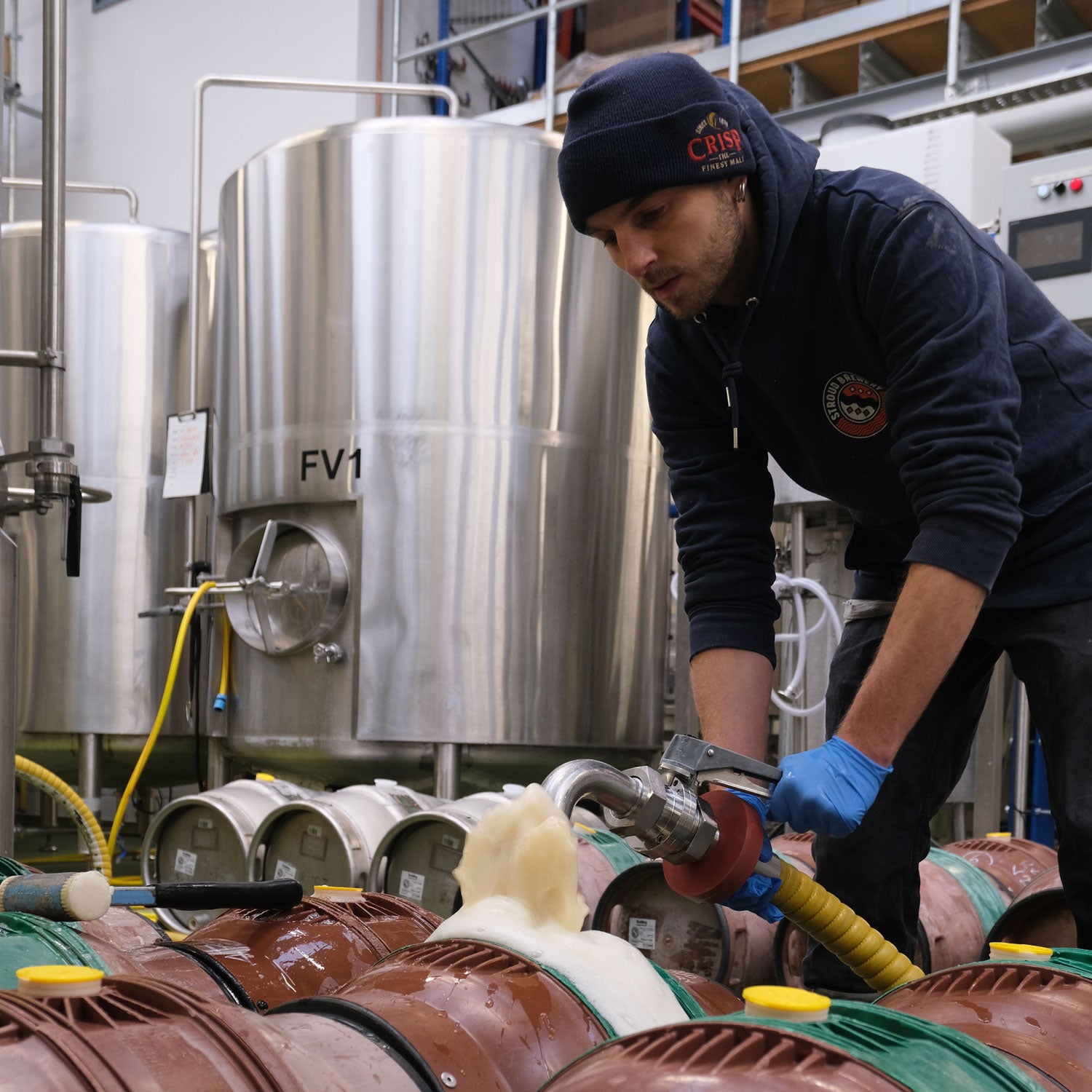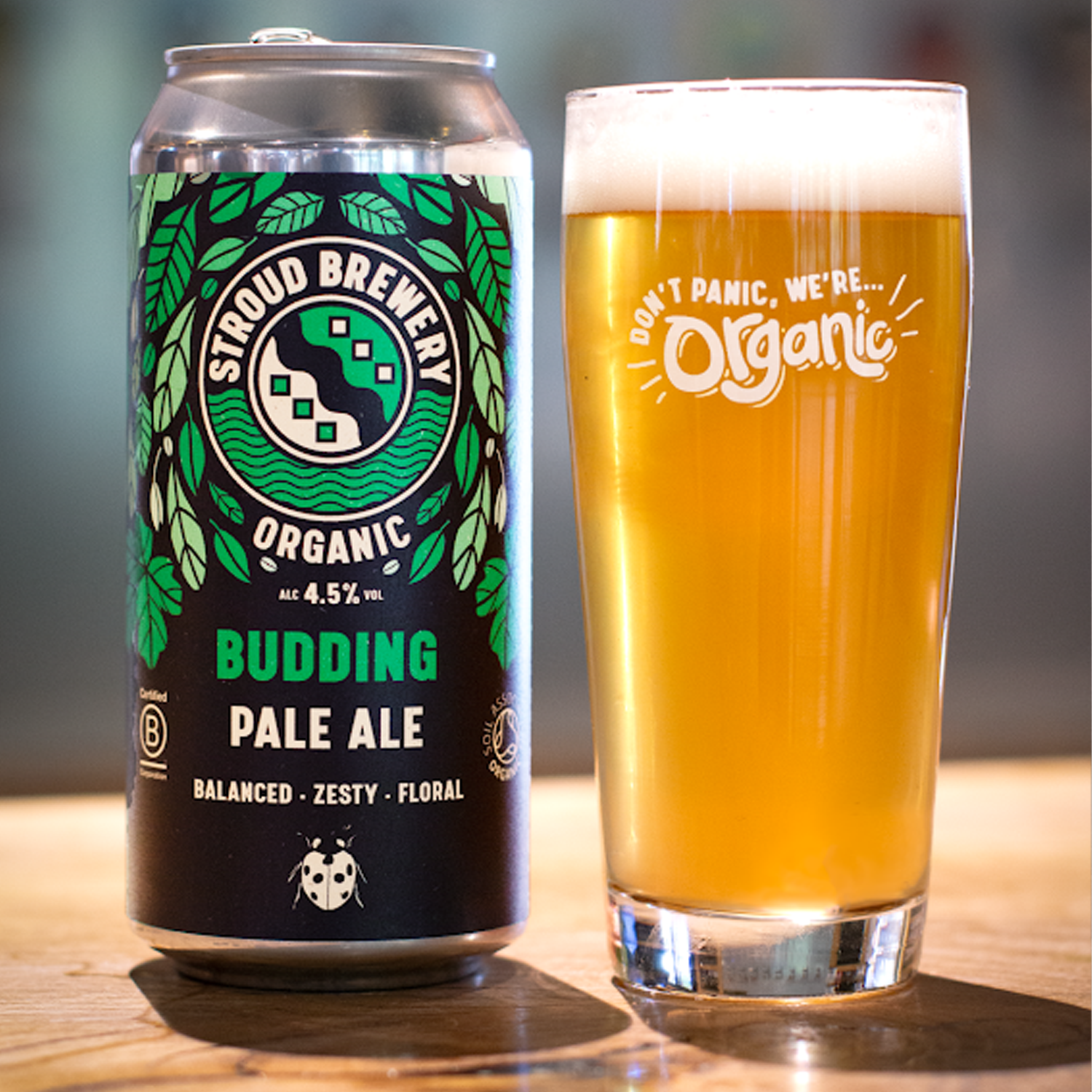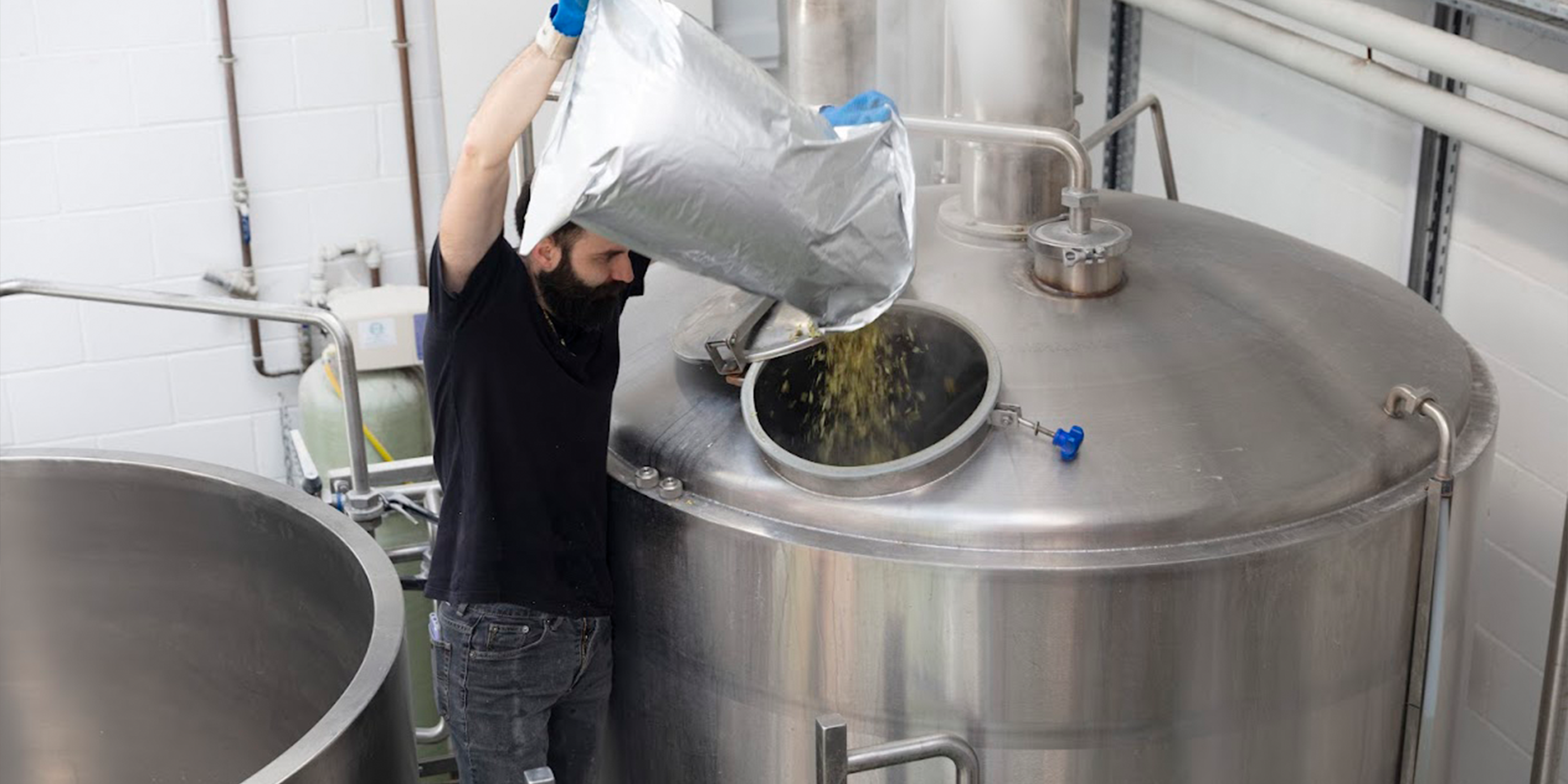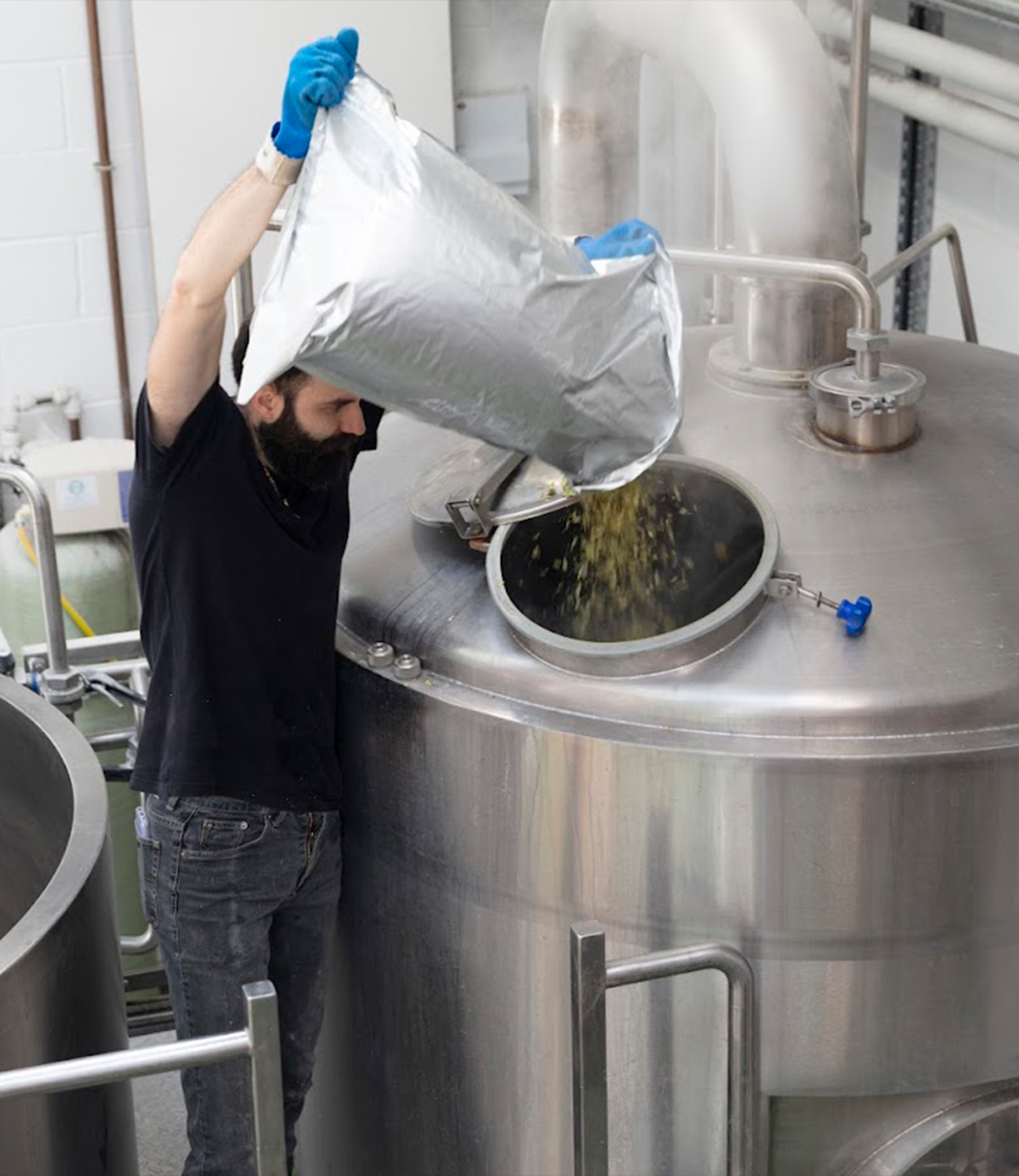Cask and canned ale has greener credentials than the rest.
Unfortunately, beer has an impact on the environment.
We know it seems like a natural product as it’s brewed using barley, hops, yeast and water, but every stage of production has an environmental impact: growing the ingredients, brewing, storage, packaging, transportation...
However, the good news is that our beers are a more sustainable option.

WHAT MAKES CASK BEER SO MUCH MORE SUSTAINABLE?
The farming methods for growing ingredients probably spring to mind first. They’re certainly important but there’s more to consider: principally the production of carbon dioxide, that well-known cause of climate change.
Although both cask and keg beer are stored in re-usable containers, keg’s storage and dispensing lead to more carbon dioxide being released into the atmosphere compared to cask.
The energy needed for refrigerating the beer plus the pressurising of the keg both lead to carbon dioxide being released into the atmosphere. Whereas, the storing of cask ale at cellar temperature (or a temperature that’s still lower than keg, even if there’s assisted chilling), and use of CO2 from natural fermentation to pressurise the barrel and carbonate the beer have much lower carbon footprints.
Add organically grown ingredients into the mix (as we do at Stroud Brewery) and the green credentials stack up even more.

WHY DO WE SELL BEER IN CANS?
Since 2021 we've been selling our beer for home consumption in cans instead of bottles as these have a much lower environmental footprint.
Aluminium cans are lighter, smaller and don’t break meaning fewer lorry loads to transport more beer, leading to reduced fuel consumption, reduced packaging, and fewer emissions.
They contain 75-80% recycled content and the aluminium can be recycled endlessly, using only
5% of the energy needed to make a brand-new can. How good is that?!


